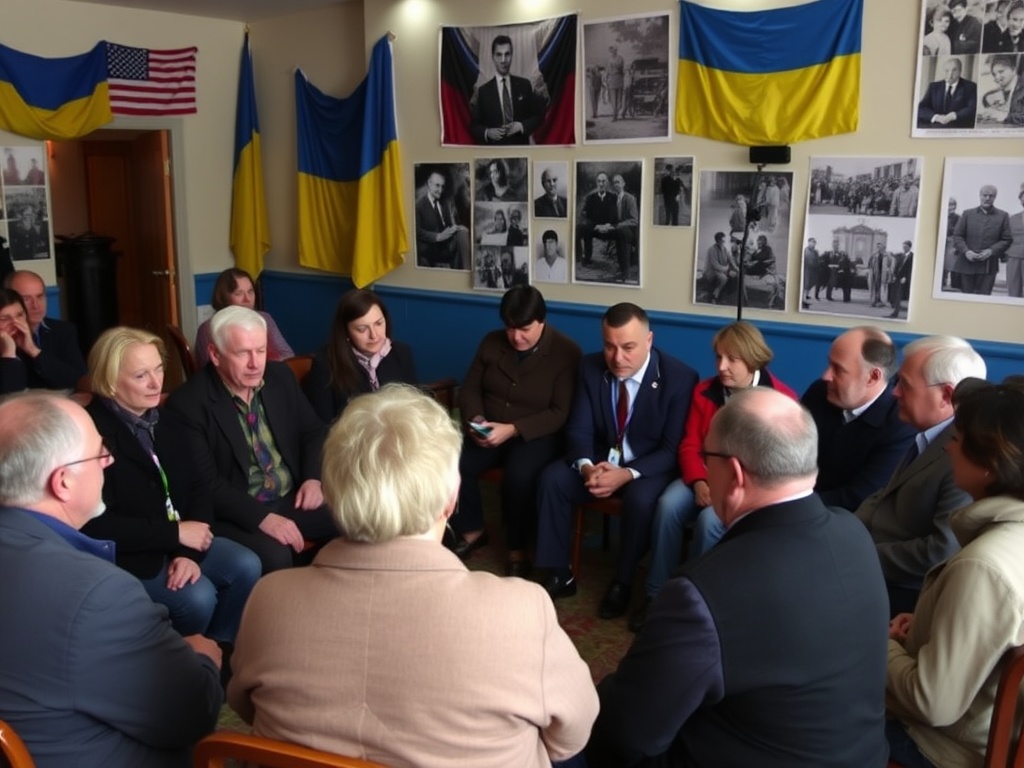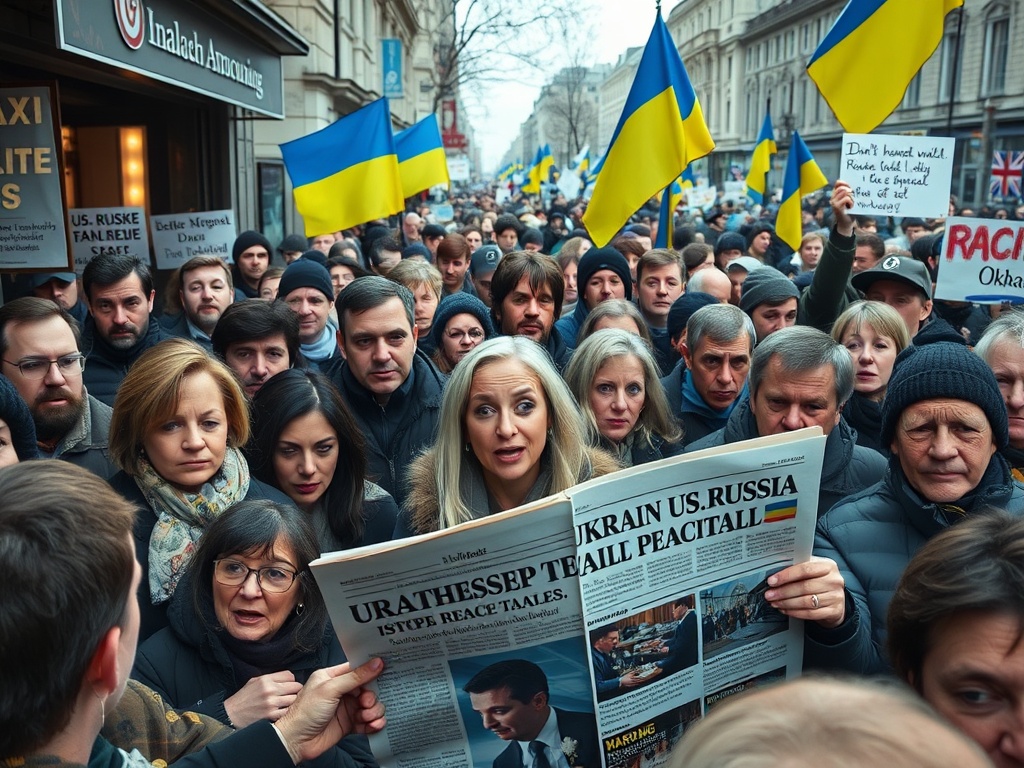Ukrainians React to US-Russia Peace Talks
KYIV – The recent bilateral talks between Russia and the United States, aimed at finding a resolution to the ongoing war, have left many Ukrainians feeling a profound sense of shock and betrayal. These discussions, held in Saudi Arabia, notably excluded any representatives from Kyiv, prompting outrage from both European and Ukrainian leaders.
Despite the criticism, US and Russian diplomats concluded their four-and-a-half-hour meeting, announcing initial steps to normalize relations between their countries. Ukrainian President Volodymyr Zelensky has consistently emphasized that Ukraine will not accept any agreements made without its direct involvement.
Alyona Kara, a 24-year-old communications specialist who was only 13 when Russia first occupied Crimea in February 2014, voiced her disillusionment. “I’ve learned that no agreements with Russia can be trusted,” she expressed, reflecting on her experiences living in Kyiv since 2018. “Their words mean nothing because they never keep their promises. I don’t believe in a long-term ceasefire. Russia will do everything in its power to reclaim all of Ukraine. They won’t stop.”
Having grown up in Berdiansk, a port city in southeastern Ukraine that has been under Russian occupation since the full-scale invasion began in February 2022, Kara believes that the exclusion of Ukraine from the negotiations sends a dangerous message. “It gives the impression that we have no choice but to comply with any proposed ceasefire plan,” she lamented. “I feel immense anger. Our country is making tremendous sacrifices and fighting valiantly against Russian aggression. The only successful strategy in negotiations with Russia is to hold them at gunpoint. Period.”
The Disillusionment with US Leadership

The sentiment of shock and betrayal permeated many conversations among Kyiv residents regarding the recent US-Russia discussions. Sergey, a 47-year-old taxi driver, admitted, “I never paid much attention to politics, but now I’m just shocked. Until the beginning of last week, everyone had hopes that President Trump would take substantial actions to support Ukraine. Now, the way he interacts with Putin has left me in disbelief.”
When asked what he hopes Trump will prioritize to aid Ukraine, Sergey mentioned the rejected US request for a share of its rare mineral rights. “The first thing I want him to do is not to treat Ukraine as his colony and exploit our resources,” he asserted. “I have little faith in the effectiveness of these negotiations or that they will lead to any meaningful peace. In my view, Trump is living in his own version of reality.”
Feeling Marginalized in Their Own Future
For 21-year-old Veronika Kupetska, the talks in Saudi Arabia signify yet another instance of Ukraine being sidelined from decisions about its own future. “It feels deeply unfair. It’s like parents gathering to choose the fate of their child, but Ukraine is no child of Russia,” she remarked. “The notion of American and Russian leaders convening to decide the outcome of the war, which Russia initiated a decade ago by occupying Crimea, Donetsk, and Luhansk, seems utterly absurd.”
Born in Lutsk and currently employed at an education technology firm in Kyiv, Kupetska emphasized that Ukraine is not merely a piece of land or a resource to be exploited. Instead, it is a nation of people fighting not just for their independence but for the preservation of democratic values worldwide. While she believes Europe understands the importance of Ukraine in terms of regional stability, the aftermath of the Russia-US talks has left her questioning America’s commitment. “It shows us that we must stand strong as independent individuals and not rely solely on American support,” she concluded.
As we spoke in a central Kyiv hotel, another 21-year-old named Polina explained the complex situation facing many Ukrainians. “While a lot of people want the war to end, they refuse to accept leaving occupied territories to Russian control,” she noted. “I think more people in Ukraine desire peace now because the situation is incredibly taxing. It’s been three years of our people losing their lives.”
Polina highlighted the challenges of daily life in Kyiv, marked by electricity shortages and air raid alarms, and contrasted it with the struggles faced by those in occupied regions. “My home is in the unoccupied areas, but I have many friends from the south and east of Ukraine, and their experiences are a profound tragedy,” she said.




